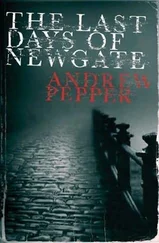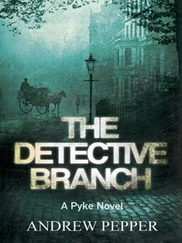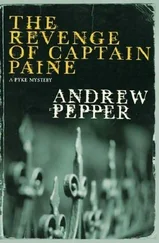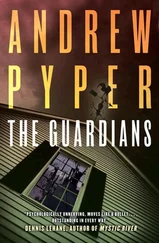That summer, they sublet the apartment and Miles drove out west for the same job he had worked the past four years, taking a position on a forest firefighting crew in the British Columbia Interior. Alex joined him for the ride as far as Vancouver and found work at an East End daycare. They saw each other as much as they could, Miles coming down to the city on his breaks and Alex taking the eight-hour bus ride to Salmon Arm on Saturdays to spend the night with him before taking the bus back on Sunday morning.
On the return cross-country drive, in a Robin’s Donuts parking lot on the outskirts of Moose Jaw, Miles gave Alex a ring he’d won from his foreman in a poker game.
‘It’s collateral,’ he said.
‘You want a loan?’
‘I want your time.’
‘I don’t get it.’
Miles placed his hands against the sides of Alex’s head. She could feel them shaking.
‘Next summer is going to be my last one working the fires. And when I come back, I want to give you something with a real rock in it.’
‘Are you looking for an answer now?’
‘That’s up to you.’
Alex slipped the foreman’s ring on her finger, a silver band with the name ROY on it in raised fool’s gold. She turned it against her knuckle until the metal warmed her skin.
‘It’s not really my style. And it’s way too big,’ she said. ‘But I’ll keep it anyway.’
They spoke frankly, always and right from the start, and best when of grave things, confessions, the conveying of bad news. For Miles, this involved the story of his missing father. A chemical engineer at the Nanaimo pulp mill who married Miles’s mother, bought a modest house near the harbour, and on the day before his son’s fifth birthday, left without leaving behind a note, an address, anything to suggest he was ever coming back.
Honesty was never an issue between them. They were truthful out of the need to be together, and plain talk came as naturally to them as desire itself. Before they knew it—and for the first time in their lives—they were speaking as man and wife.
Miles was accepted to the University of Toronto Faculty of Medicine and Alex took a position at the Arrowsmith School for learning disabled children in the same city. Three months separated them from their futures. For this final summer before the beginning of their new lives together, of true adulthood, of marriage, Miles headed west one last time to work the wildfire season.
His name is Tim, but everyone calls him the kid. Every attack team Miles has ever worked on has had a ‘kid’, a nickname automatically assigned to the youngest member of the crew. But this one deserves it. He has the sort of face that is an indisputable foreshadowing of how he would look twenty, thirty, fifty years from now, and how even then, he would still be the kid. Round and shinychinned, his skin so flushed as to be an almost laughable display of good health. At first, Miles told himself to call the boy by his proper name, so that at least one of the crew saw that he was doing a man’s job and deserved to be recognized for it. But by the end of the second week even Miles couldn’t fight the obvious and called him nothing but ‘kid’ from then on.
The fire camp Miles has been assigned to is about twelve miles out of Salmon Arm, at the petered-out end of a logging road. When Miles arrives, he is taken into the camp office, where the fire director as well as a rep from the pulp company sit on the other side of the room’s single desk. Miles wonders what he could have already done that would justify being fired.
Instead, they make him foreman. The pay isn’t much better than a crewman’s, but the desk will be his, and use of the camp’s only phone, which will allow him to call Alex in the evenings and catch her before she goes to bed, three hours ahead of him in the east. And he knows there likely isn’t anyone in camp more knowledgeable than himself. Alex calls him a pyro-nerd. When he reads for pleasure, it’s always scientific studies of how fire starts, how it lives, how it dies. Government ‘burn pattern’ reports. Historical accounts of smokechasing disasters—Mann Gulch, South Canyon, Peshtigo.
‘You have two things to take care of out here, Mr McEwan,’ the pulp company guy says at the end of the interview, the only time he speaks at all. ‘The trees and the men. Just know that the company owns the trees.’
‘What about the men?’
‘They’re all yours.’
Miles never thought of the crew as his, but he felt his responsibility as its leader at every moment, not so much a weight but something added to his blood to thicken it. It made it easier that Miles liked them, especially the kid. Another pyro-nerd in the making. Asking questions about the origins of pulaskis, the combination rake-hoes designed for cutting fireline in different ground conditions. Volunteering for the nastiest tasks—staying the night to keep an eye on spot fires extinguished the day before, axing a snag into pieces to see if the smoke had hidden inside it, manning the radio when everyone else opted to make a dent in the beer stocks. He did all of this not to seek approval but because he wanted to see how it was done. The rest of the crew liked him for this, too. Not only because the kid relieved them from unpleasant work but because he so plainly loved doing it. It was hard even to make fun of someone like that.
Miles also admired the way the kid could spend time with him without disturbing his thoughts. As a result, he spoke more freely with him than with anyone else on the attack team. Although Miles never brought up the topic of their friendship, he knew that this is what they had found together. Alex asked after him in every phone conversation they had. She always called him Tim.
‘There’s a pattern to every crewman’s career,’ Miles remembers telling the kid on one of their long drives between watchtowers. ‘The first year you learn, the second year you complain, and the third year you actually enjoy yourself. There’s almost never a fourth year.’
‘How long have you been doing it?’
‘Five years,’ Miles says, laughing. ‘But I’m still learning. With fires, there’s always something you think you know but don’t.’
What Miles neglected to add is that without fires to work on, there’s not much to learn anything from. This year, June and most of July turn out to be curiously uneventful months, despite the above-average heat and string of eighteen days without rain. Aside from a handful of smouldering snags lit up by lightning, and a burning garbage can at a roadside picnic area fifteen miles to the south, the camp is fire free.
The crew spend the time inventing increasingly complex practical jokes, eating too much, pretending to be soldiers. Miles has experienced stretches like this before, though not nearly as long, and is coming to the end of make-work tasks. The two pockmarked pickups had been waxed into glittering auto show pretties. The cache’s store of tools were sharp as butcher’s cleavers, the other supplies hung upon hooks or lined in straight aisles according to an ‘attack priority sequence’, just like the manual dreamed it might be. The bunkhouse was painted top to bottom four times, followed by a poll on each colour’s aesthetic merits. By the middle of July, it was neon pink. A unanimous vote (Miles abstaining) determined it would stay this way for the rest of the season.
It isn’t until the first week of August that they receive notice from a spotter plane of a smoker at the bottom end of a gulch funnelling down into the Mazko River, two hundred miles north. Miles had known that something was there for the past twenty-four hours, as the spotter had to pass the site twice to determine whether it was an actual fire or merely a ‘ghost,’ the mist that can rise in locations near water. The delay in identifying the fire hasn’t allowed it much growth, though—the plane’s last report was of a tight congestion of small spot fires, each one no bigger than the smouldering sticks left behind at morning campsites.
Читать дальше











